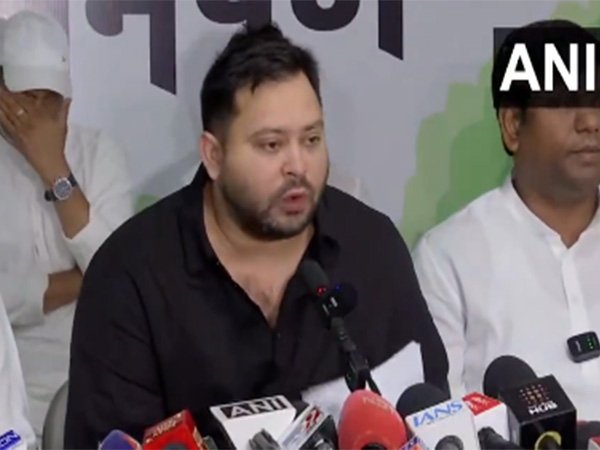'Fair', 'slim' in demand but educated Muslim women still a no-no in marriage market

The empowering attribute of education feels more like a curse and a drag for women, thanks to popular matrimonial expectations and the matrimonial advertising culture. This is true for women, in general, and Muslim women, in particular.
The more educated a girl, the less chances she has of landing a suitable partner. And that's not because there is a dearth of equally-qualified males for girls who are doctors/engineers/lawyers or corporate professionals, but because men in the same professions systematically seek younger (and thus lower qualified) and 'fair/slim/convent educated' brides.
This furthers a social tendency called 'hypergamy', which is a way to maintain an unequal relationship between the sexes through unequal match-making.
Obviously, there is no systematic correlation between 'looks' and merit. The better placed a woman is, employment-wise, the greater her age will be, which means education works to the disadvantage of women in marriage markets.
Though this could be said of the matrimonial ad culture in general, this article will zoom in on evidence from Muslim matrimonial ads, and talk about the challenges faced by Muslim women looking for a matrimonial alliance.
The trend
If one does a quick survey of matrimonial ads in newspapers, bodily traits like 'fair' and 'slim', or qualities like 'spiritual/religious' are still found to be more desirable in women. In comparison, attributes like 'highly educated' and 'professional' are descriptors usually reserved for men.
Further, in ads by grooms-to-be or their families, the grooms' families are almost universally described as 'traditional', thus rationalising why they are seeking 'homely/religious/spiritual' brides instead of highly qualified/professional girls.
However if one looks at ads by girls' parents, one never finds the descriptor 'traditional'. Instead, most commonly, 'respectable' is used for the family, indicating acceptance of the social prejudices of both a traditional specification of gender roles after marriage, as well as of notions of 'respectability' (and honour) which need to be vested in the female body/persona, and thus, by consequence, in her family.
I sampled 50 matrimonial adverts appearing in various English newspapers in India over a period of three weeks, and this is what I found.
Out of the 50 ads sampled, 44 specified the sub-community/biradari/sect/caste of the seeker (Sheikh/Syed/Shia/Sunni etc). Since caste, per se, is not acknowledged among Muslims in India (more so in the north), the 'caste no bar' variety of emancipation was rare too. And since 'caste no bar' almost invariably appears along with well-settled and well-to-do descriptions, it appears to be more a code for seeking a well-educated or affluent family.
Only five ads (out of 25 ads by grooms' families) wanted professionally qualified or working brides. On the other hand, ads by brides' parents always said 'highly educated' and/or professional about the girls, indicating a yawning gap between what was available and what was being sought.
Matches do, however, get made despite this gap, and I wonder whether these projected differences in expectations are only to set the terms of engagement in a marriage!
Sixteen of the 25 ads by the grooms' families also asked for 'beautiful' brides, and even those ads that sought educated brides did not hesitate to express a preference for fair/slim/beautiful girls.
Personal experiences
Conversations with friends from the community working as professionals, both men and women, have also mostly reinforced experience with set social stereotypes. Men mostly seek younger brides, and even when they don't expect the woman to be non-working or less qualified per se, the gender division of roles and expected division of familial responsibilities is such that women who are equally qualified/ better placed are most likely to turn down a match with these men.
Apart from this, expectations such as the woman will not visit her parents 'too frequently', or won't stay back at the workplace longer than the 'minimum required' are also common. Sadly, even in matrimonial alliances, where these questions do not surface before marriage, they invariably crop up afterwards.
One common complaint my working women friends had was that they were clearly expected not to take active care of their parents, even in cases where these girls were an only child, or the only working child of their parents.
Needless to say, the more educated we are, the more freedom, equality and dignity we seek, both as individuals and in a matrimonial relationship. But women's quest for equality and individual freedom, especially the freedom to be able to actively care for their parents, is still read as 'irresponsibility' and 'rebellion' in a marriage. The in-laws'/husband's desire to control the work-lives/earnings of these women is something very common.
The change within
That's not to say the cultural scene of marriages is not changing among the community. But looking around, one finds that of all marriages, almost 80-90% are still arranged and based on traditional premises.
Even within the 10-20% category of 'marriage by choice', it is very common to see people choosing someone from their own community/religion/culture, thus annulling the possibility of cultural gain from a cross-cultural alliance.
The only hope I see for women in the Muslim community and generally (besides to reject the very medium of 'arranged marriage') to be able to thwart patriarchy and sexism, is to seek equal partnerships themselves, and not go for 'more qualified' and older men who earn more than them and reject the very idea of dowry.
Matrimonial advertisements or outside, it is up to us to determine whether we let our education be an attribute that empowers us, or something that drags us down, making it difficult for us to fit into regressive social/cultural spaces.
If a choice must be made, our emancipation lies in choosing education, work and independence over convenient and socially-acceptable perceptions of ourselves.
Edited by Shreyas Sharma
First published: 27 September 2016, 9:32 IST





![BJP's Kapil Mishra recreates Shankar Mahadevan’s ‘Breathless’ song to highlight Delhi pollution [WATCH] BJP's Kapil Mishra recreates Shankar Mahadevan’s ‘Breathless’ song to highlight Delhi pollution [WATCH]](https://images.catchnews.com/upload/2022/11/03/kapil-mishra_240884_300x172.png)

![Anupam Kher shares pictures of his toned body on 67th birthday [MUST SEE] Anupam Kher shares pictures of his toned body on 67th birthday [MUST SEE]](https://images.catchnews.com/upload/2022/03/07/Anupam_kher_231145_300x172.jpg)






